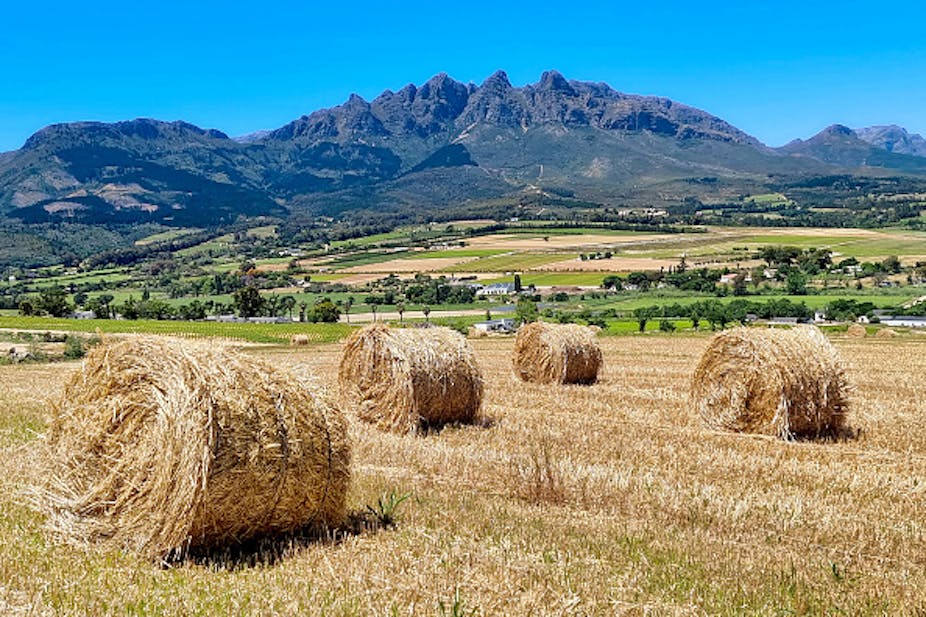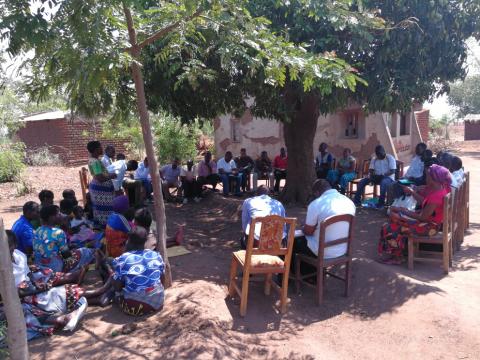Découvrez des histoires cachées et des voix non entendues sur les questions de la gouvernance foncière dans le monde entier. C'est ici que la communauté du Land Portal partage ses activités, ses expériences, ses défis et ses succès.
Issues
Geographical focus
La Fondation Land Portal, en partenariat avec Transparency International, a organisé le webinaire intitulé « L'ouverture de nouveaux horizons : Perspectives et histoires sur l'impact de la corruption foncière sur les groupes discriminés en Afrique ». Le webinaire a réuni un panel d'experts distingués pour approfondir les défis et les complexités de la corruption entrelacée avec la discrimination dans les droits fonciers et la gouvernance foncière.
(Photo: CC BY-NC-ND 2.0 DEED ILRI)
Sommaire
Sous l'égide de la série Advancing Land-based Investment Governance (ALIGN), le deuxième webinaire de la série " La décision sur l'affaire Maledu : Le pouvoir de la reconnaissance des droits foncières " a eu lieu le 22 mars 2023. Le webinaire a attiré un peu plus de 230 participants et a réuni des panélistes du secteur privé, des membres des communautés affectées par l'exploitation minière et des praticiens. La série est organisée par un consortium d'organisations, notamment la Fondation Land Portal, CCSI, IIED et Namati.
Cet article de blog fait partie de la série Quoi lire.
En tant que chercheur compilant les portefeuilles de pays africains pour le Land Portal, j'ai été frappé par le creusement des inégalités, tant au sein des pays du Sud qu'entre le Sud et le Nord. Les liens entre l'exploitation minière, la captation des ressources et les conflits sont apparus comme un thème transversal.
Cet article de blog fait partie de la série Quoi lire.
En tant que chercheur compilant les portefeuilles de pays africains pour le Land Portal, j'ai été frappé par le creusement des inégalités, tant au sein des pays du Sud qu'entre le Sud et le Nord. Les liens entre l'exploitation minière, la captation des ressources et les conflits sont apparus comme un thème transversal.
South Africa needs to move away from siloed and passive approaches toward water management and adopt more proactive, robust and integrated approaches.
Apopular phrase in a time of crisis is “it never rains, but it pours”. This is usually a figurative expression referring to the overwhelming sense of chaos at a given time. South Africa is a country which has not been spared from economic, social and political chaos over the past few months, and the phrase has now taken on a literal meaning.
Traditional leaders assign land giving little consideration to spatial planning for long-term, sustainable settlement. People are settled in places unsuitable for human habitation. And climate change will bring added volatility and exposure.
This op-ed by Katlego Ramantsina, a researcher at the Institute for Poverty, Land and Agrarian Studies first appeared in the Daily Maverick
Developing land tenure legislation is a difficult job to get right — especially given the legacy of intractable problems inherited from apartheid. The Gauteng consultation did not seem genuine: it lasted only three hours.
This article by Wandile Sihlobo was first published in The Conversation

Ido Lekota is a former Sowetan political editor.
Agriculture, Land Reform and Rural Development Minister Thoko Didiza tabled a R17, 3 billion budget in the past week to help support food security in the country.
Didiza said the money will be distributed through a range of programmes, including the commercialisation of black farmers through land development support.
"If you look at the R17.3bn of our budget, the majority of that is transferred to provinces dealing with food security," she said.
Nick Vink and Johann Kirsten
Most countries in both the rich and the developing world have some sort of programme to help early career farmers (mostly, but not exclusively young people) to get established in a farming or agribusiness enterprise. South Africa sticks out like a sore thumb, even against many African countries, in not having such a programme.
In our view, subsidies for black farmers in South Africa are justified. This is because they would help deliver a more inclusive agricultural sector and correct past racial biases.





